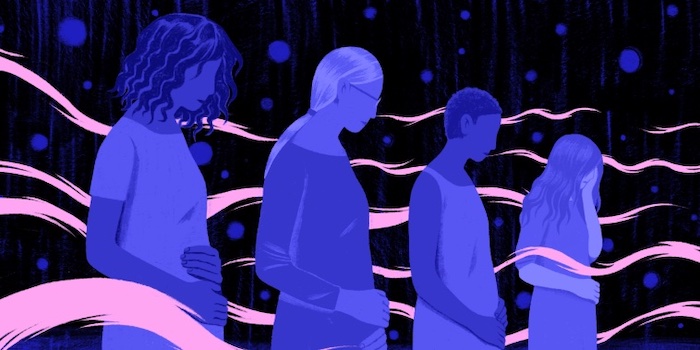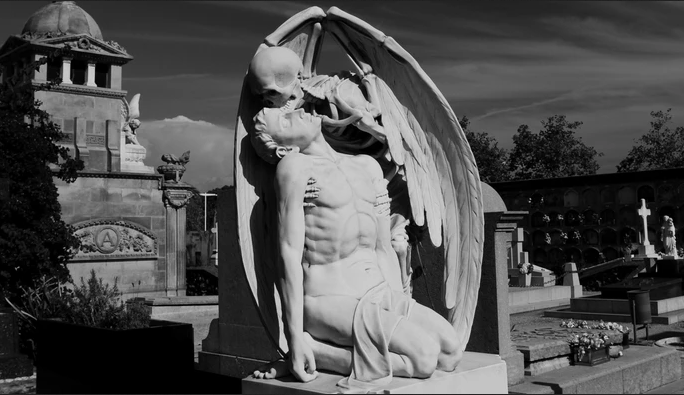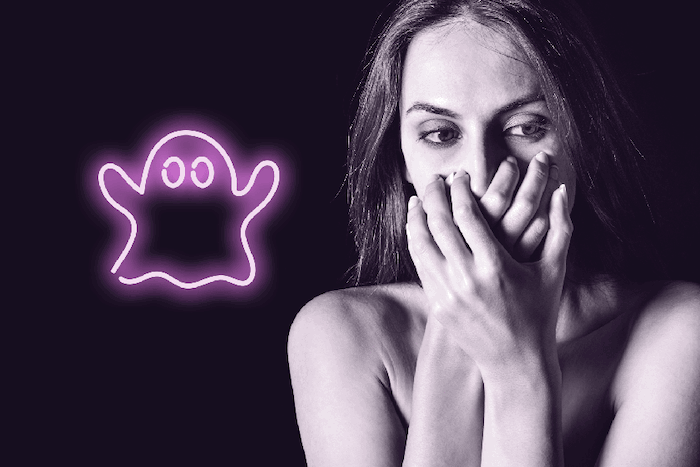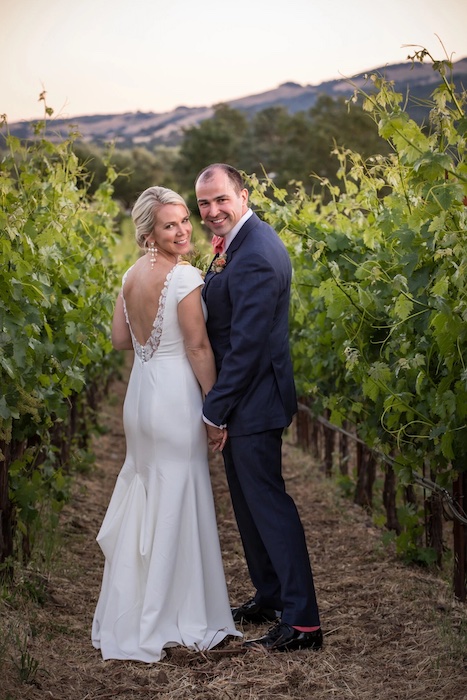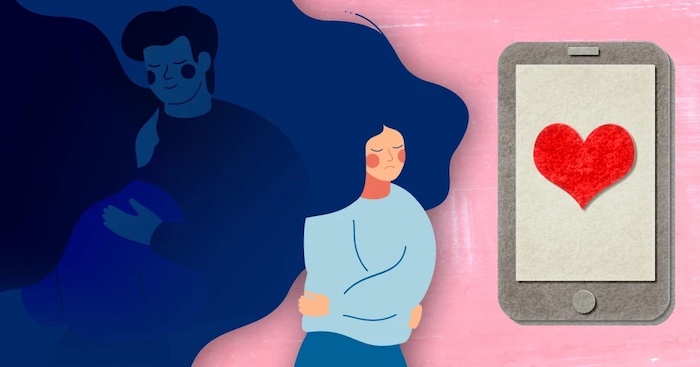
By
Losing a partner is one of the hardest things a person can ever go through.
While it wanes, the grief never leaves. As humans, we merely learn to live with it.
And feelings associated with loss can be complex – particularly when it comes to the thought of potentially dating again, or becoming romantically involved with someone new.
While, understandably, this may not be on a bereaved partner’s mind for some time, if (or when) it does happen, it can be difficult.
There are many reasons for this, some more obvious than others.
‘Many people who’ve lost a partner find it difficult to consider meeting someone new because they may tell themselves that it would be as if they were trying to replace the person they’ve lost,’ explains relationship expert Rhian Kivits.
‘They may feel like they’re being disloyal or that moving on is fickle.
‘Some even fear the judgment of friends and family and the idea of meeting someone new is shrouded in shame.
‘Others sometimes worry that potential partners will be put off by the fact that they’ve been bereaved, as it can feel like a heavy burden to carry into a new relationship.’
There are lots of things to take into consideration but the most important element is to be kind to yourself and move at a pace that feels comfortable to you.
Experts have shared some other things to keep in mind.
How to deal with feelings of guilt and anxiety
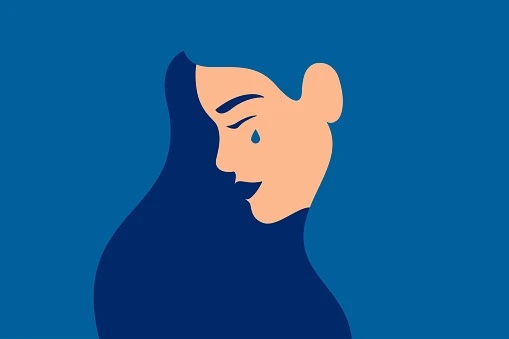
‘Re-establishing a romantic or a sexual dimension to one’s life can feel disloyal to the person you’ve lost,’ says senior therapist Sally Baker.
‘Plus, developing a new physical relationship can provoke anxiety in someone who has been monogamous for a long period of time.’
Sally suggests that all of these fears and anxieties are natural – but that they might feel greater than necessary if a bereaved person is pushing themselves to get back out there intimately, before they are emotionally ready.
So, it’s important to move at your own pace.
However, feelings associated with guilt are often complicated and it’s not always connected to starting a new relationship.
‘People can sometimes even feel guilty for surviving when their loved one has died,’ Sally explains. ‘I would remind them that the person who they lost wouldn’t want them to just survive, but to thrive.’
Dr Venetia Leonidaki, Doctify-reviewed consultant psychologist and founder of Spiral Psychology, agrees.
She says: ‘Even though your partner died, you are still alive. Living a meaningful and full life is the best antidote to death.’
Dr Venetia echoes Sally and suggests considering what you think your partner would want for you, and how you would feel if it was the other way round.
‘If things had turned out differently and you were the first to die out of the two of you, how would you feel about your partner starting a new relationship?’ she adds.
‘Your love for your partner never dies. You may always carry your partner and your shared memories within you.
‘However, this doesn’t mean that there will be no space in your heart for someone new.’
Try to not let feelings of guilt consume you, and remember that this doesn’t mean you are replacing your partner.
‘It helps to acknowledge that you’re not looking to replace your loved one, and to remember that the new people you’ll meet are unique, so they’ll bring different qualities and experiences into your life,’ adds Rhian.
‘You deserve to enjoy companionship, affection, love and sex and you still have a precious life to live.’
Know there’s no timeline
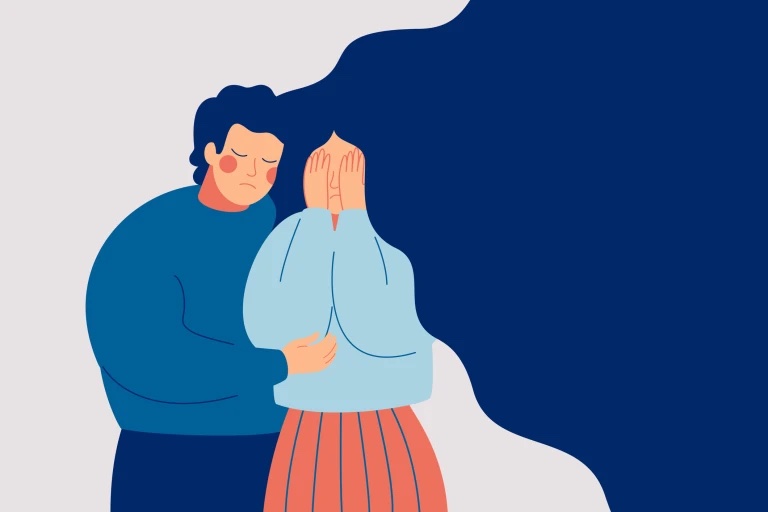
Every person is individual when it comes to their readiness to date after bereavement.
‘Rather than impose a timescale on it, I prefer to encourage the person to understand their motivations for dating,’ says Rhian.
When someone has found peace and acceptance around their loss and feel ready to begin rebuilding their lives, this is when someone is likely to be ready.
‘If they’re using dating to avoid or alleviate their grief, or they have the idea that dating will help them erase the past, they’re probably not quite ready yet,’ she continues.
While there is no ‘right’ or ‘wrong’ time, Sally suggests that, often, the most acute pain of a bereavement fades to a more manageable level between a year and two years.
‘However,’ she says, ‘there is no carved in stone timeline and the circumstances of their loss and the quality of their relationship means feelings of sadness can be exacerbated or eased.’
She adds that it’s completely acceptable not to feel ready for a long time.
However, you may have to learn how to navigate other people’s expectations and be very clear what’s up for dialogue or discussion.
Don’t worry about what other people think
Some people may feel that there is a ‘stigma’ attached to moving on too quickly with rebuilding your life.
However, this fear of other people’s judgments could prevent you from getting back into considering dating, stresses Dr Venetia.
This is why it’s important not to place emphasis on what other people have to say, and listen to your own emotions.
Family and friends will likely have had a relationship with your partner as well, and this can impact their opinion on things.
‘There will always be people who believe the bereaved should stay in mourning and never embrace a new life,’ says Sally.
‘However, a close brush with mortality that losing a loved one can bring often spurs people on to live their life as fully as possible – or at least to believe it’s their time to make decisions that suit them best.’
Sometimes, it can even go the other way, with people who care about you usually being too keen to find solutions that they think will make you feel less sad.
‘Suggesting or even pushing you towards a new relationship may be how they express their concern towards you,’ says Dr Venetia.
‘They think that this is what will make you feel better. However, you will know best when (and if) you are ready to meet a new person. Take your time, listen to your heart, and don’t allow anyone to rush you through.’
Ultimately, experts say it’s not up to anyone but the individual to decide whether it’s time to start dating.
Rhian adds: ‘If other people are judgemental, it’s possibly because they haven’t fully processed the bereavement themselves or have a fixed perspective based on misplaced morals.’
However, she stresses that most friends and family will want the person to be happy, and understand that the desire for company, love, affection and sex is only human.
Fill your life with other things
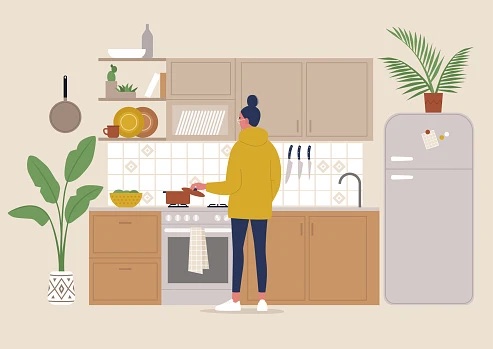
While moving on might be the right thing for some people, it’s completely acceptable if you feel that you don’t want another partner in your life.
‘After their partner’s loss, many people find ways to live a fulfilling life which do not involve a new relationship,’ says Dr Venetia.
She suggests that finding other ways to fill your life with happiness is a good tactic.
‘Spending more time with friends or family, focusing on work, discovering new hobbies, reconnecting with your faith or spirituality, travelling, helping others or finding ways to honour your partner’s memory,’ she continues.
‘All of these things can all give meaning to your life and bring joy.’
Go at your own pace
For those who do decide to put themselves back out there after such a loss, it can be scary – however, you are not alone.
‘Take your time and go at your pace,’ suggests Sally.
‘Try to resist pressure from others to meet their expectations. You’ve suffered a huge loss and earned the right to put your own needs first.’
It’s normal for things to feel a bit strange at first and there’s never any need to rush or make commitments.
Rhian adds: ‘Be clear about your boundaries and what you feel able to offer a potential partner.
‘And know that if it doesn’t work out, or if feels like it’s a mistake, you can pause and return to dating again when you feel more aligned.’
Consider asking for help
While it’s completely understandable, and acceptable, to not want to move on, there might be a time to think about asking for professional help.
Rhian advises the following: ‘If you are concerned that you’re stuck in your grieving process, if you suspect you’ve developed anxiety or depression or worry that you’ve become too fearful to date, it’s worth talking through your concerns with a therapist.’
Whatever happens, never be afraid to ask for help if you need it, don’t worry what other people think and take steps to do whatever feels right for you.
If you’re struggling and think you need help from someone more removed from the situation, you could also contact a support organisation such as Cruse Bereavement Care.
Complete Article ↪HERE↩!


